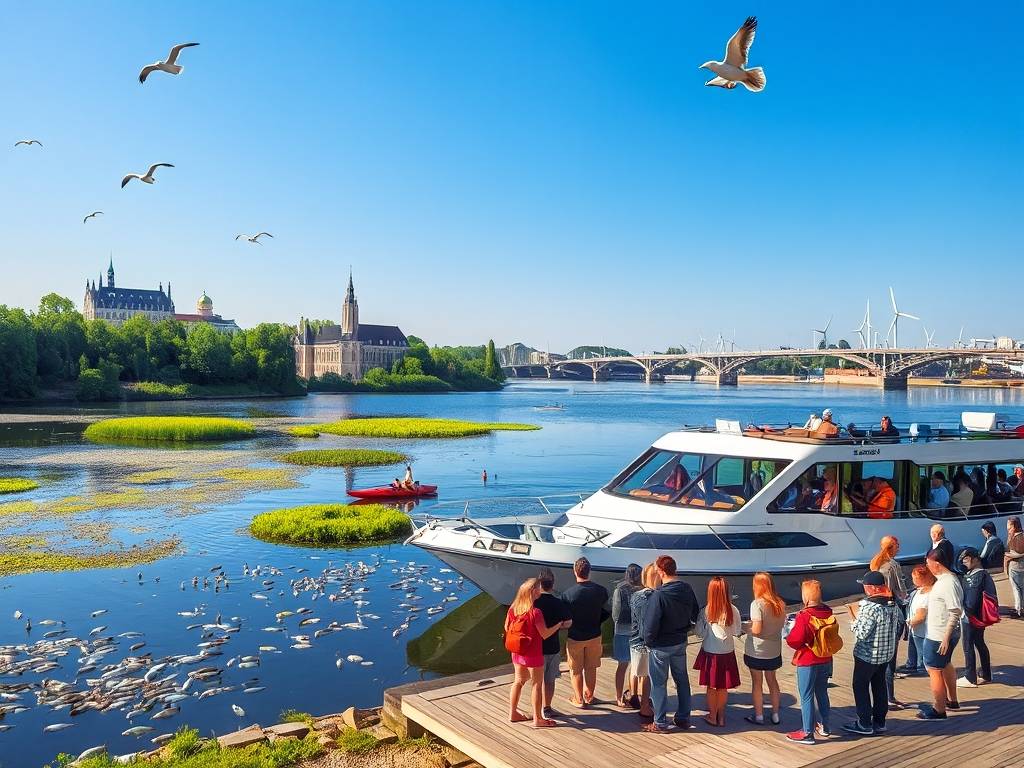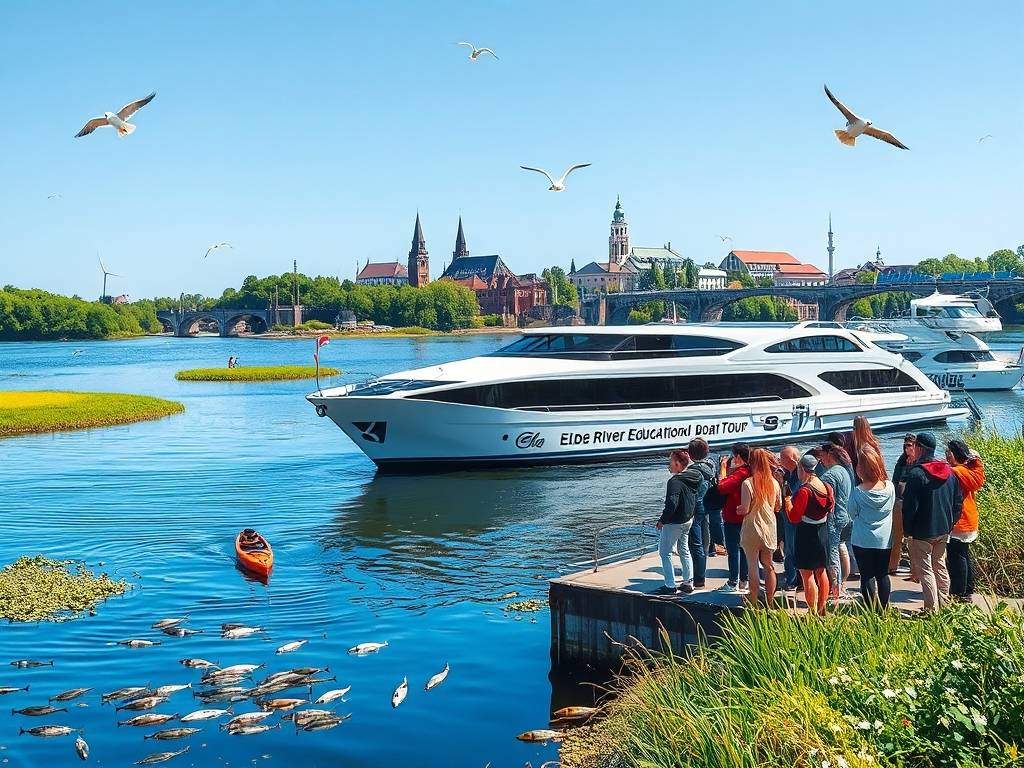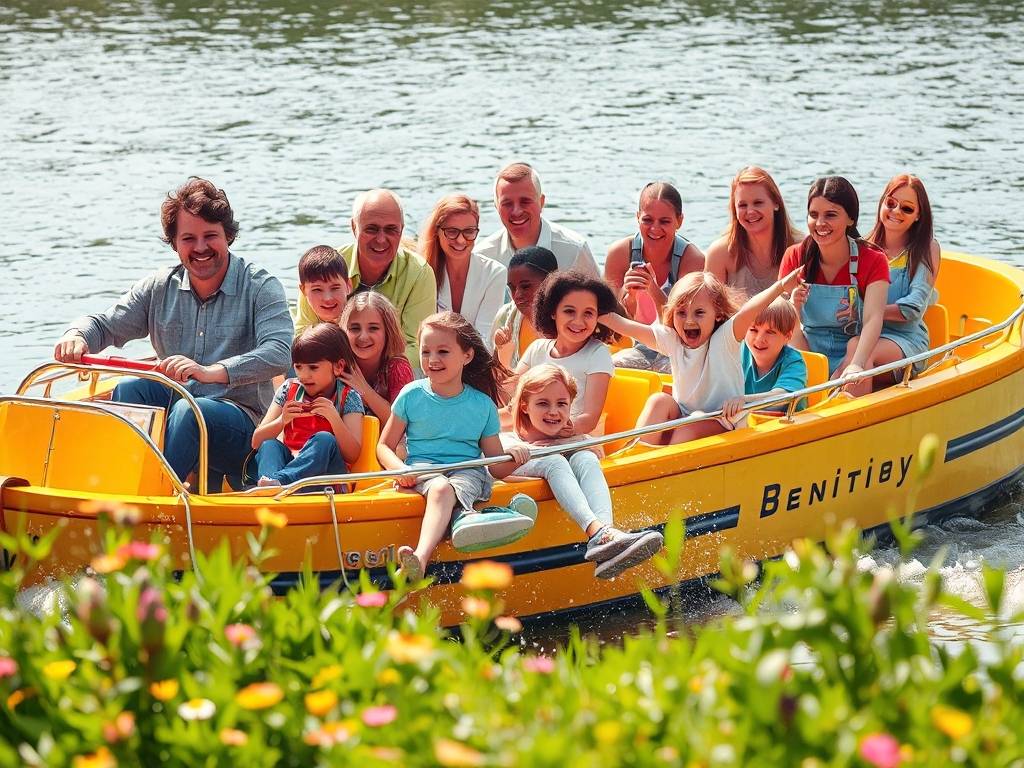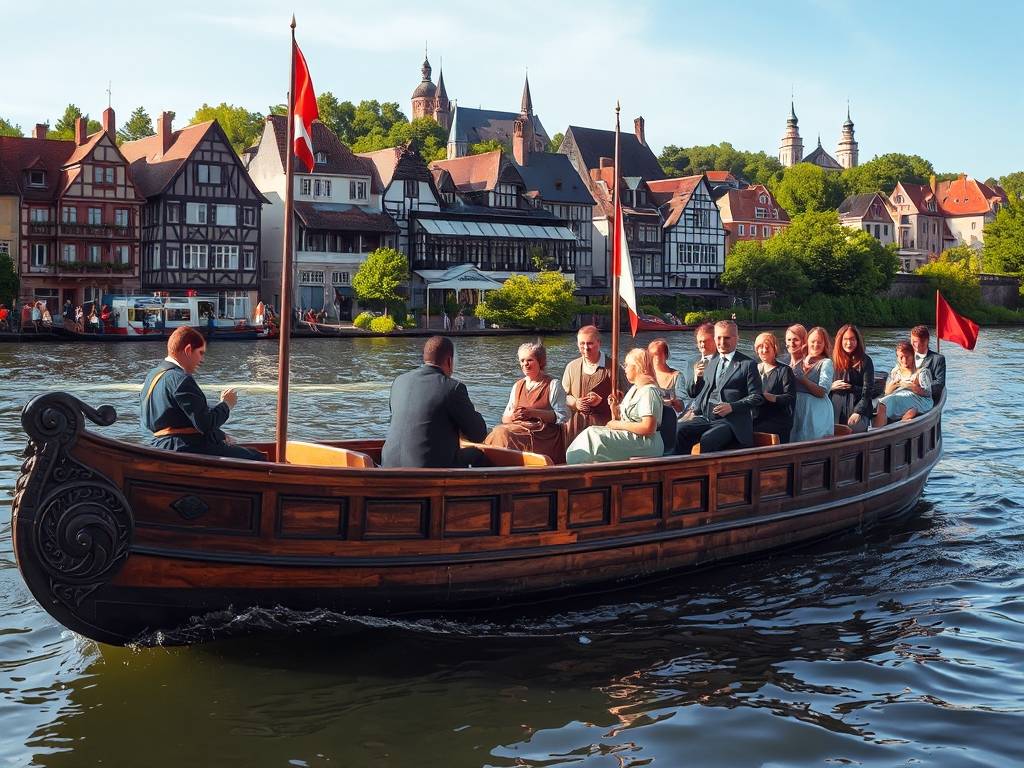Global Travel Information
Elbe River Educational Boat Tours: Learn About Ecology
The Elbe's Whisper: Unlocking the Secrets of a European River on an Educational Voyage
The great rivers of the world have long been arteries of commerce, culture, and conquest. The Elbe, flowing over a thousand kilometers from the Krkonoše Mountains in the Czech Republic to the North Sea at Cuxhaven, Germany, is no exception. Its waters have borne Celtic tribes, Roman legions, medieval merchants, and Cold War tensions. Yet, to view the Elbe merely as a historical artifact is to miss its most vital, contemporary story. Today, a journey along its course offers a profound, living lesson in ecology, resilience, and the delicate balance between human civilization and the natural world. Educational boat tours on the Elbe are not mere sightseeing trips; they are immersive classrooms where the river itself becomes the teacher, whispering secrets of its past and present.
The journey often begins in the vibrant city of Hamburg, Germany's great port. Here, the Elbe is a titan, a wide, bustling highway for massive container ships. An educational tour starting here immediately confronts the student with the central theme of human-river interaction. The guide, often a trained ecologist or hydrologist, points not just to the iconic Elbphilharmonie concert hall but to the intricate system of canals, locks, and industrial quays. The discussion revolves around the challenges of a modern port: ballast water from international ships introducing invasive species, the constant dredging required to maintain shipping channels and its impact on sediment flow, and the complex engineering of flood defenses in an era of rising sea levels. This is ecology in the raw, not abstracted in a textbook. Participants see firsthand the conflict between economic necessity and environmental health, understanding that the river's management is a continuous negotiation.

As the boat pulls away from Hamburg's industrial might, the landscape begins to soften. The river widens, and the banks recede into the vast, unique ecosystem of the Elbe Biosphere Reserve. This is the heart of the educational experience, a UNESCO-recognized sanctuary that stretches for over 400 kilometers. Here, the Elbe reveals its true, wild character. The tour boat slows, and silence is encouraged, broken only by the lapping of water and the calls of birds. Binoculars are passed around as the guide identifies the inhabitants of this riparian world. Majestic white-tailed eagles, once nearly extinct in Central Europe, circle overhead, their recovery a testament to conservation efforts. Colonies of beavers, successfully reintroduced, have reshaped the riverbanks with their dams, creating new wetlands that benefit countless other species.
The educational focus shifts to the concept of a "dynamic river." Unlike the channelized and controlled stretches near cities, this part of the Elbe is allowed to meander. The guide explains how seasonal floods are not disasters to be prevented at all costs but essential ecological processes. They replenish nutrients on the floodplains, disperse plant seeds, and create the mosaic of habitats that support such high biodiversity. Passengers can observe the gradation of vegetation from the water's edge—willows and poplars tolerant of flooding—to the ancient, gnarled oaks of the higher meadows. This is a lesson in succession and adaptation, visible in real-time. Water quality testing kits might be brought out, allowing participants to measure parameters like pH, nitrate levels, and oxygen content, comparing them to data from the urban sections and understanding the river's self-purifying capacity.
A crucial chapter of the Elbe's ecological story is one of remarkable recovery. During the division of Germany, the Elbe marked part of the border between East and West. Neglect and heavy industry, particularly in the former East Germany, turned it into one of the most polluted rivers in Europe. Educational tours dedicated to this theme often include stops or commentary near former industrial sites. The guides tell the story of the "Wende," the political turning point of 1989, which became an environmental turning point as well. With the collapse of many polluting industries and the implementation of strict EU water framework directives, the Elbe began to heal. The return of the salmon after decades of absence is a powerful symbol of this renaissance. This narrative provides a message of hope, demonstrating that with political will and scientific understanding, even severely damaged ecosystems can be restored.

Further upstream, as the boat navigates towards Dresden, the landscape becomes more dramatic. The river cuts through sandstone mountains, creating the stunning Elbe Sandstone Mountains landscape. The education here encompasses geology and its influence on biology. The guide explains how the unique microclimates of the gorges and the mineral composition of the water support specialized flora and fauna. The discussion might turn to the challenges of tourism management in such a fragile environment, balancing public access with the protection of sensitive nesting sites and rare plants. The iconic Bastei Bridge is not just a photo opportunity but a vantage point to discuss forest ecology and the impact of changing climate patterns on these ancient rock formations.
The cultural history of the river is inextricably linked to its ecology. Passing the vineyards of the Elbe Valley near Dresden, the tour explores the concept of cultural landscapes. These slopes have been cultivated for centuries, creating a unique habitat that supports a different suite of species than either the wild floodplains or the dense forests. The architecture of cities like Meissen and Dresden, rising from the banks, speaks to a human history built with and upon the river. The tours cleverly weave these threads together, showing how the river provided not just water and transport but also the sandstone for building and the fertile land for agriculture. It’s a holistic lesson in how human culture is a part of, not separate from, the ecosystem.
An educational boat tour on the Elbe culminates in a deeper, personal understanding of interconnectedness. As the journey concludes, passengers carry with them more than just photographs. They carry an understanding of watersheds—how actions in the Czech highlands affect the water quality in Hamburg's port. They appreciate the importance of biodiversity, not as a abstract concept, but as a visible, thriving community of eagles, beavers, fish, and forests. They have witnessed the scars of industrial pollution and the inspiring power of ecological restoration.
Ultimately, these tours are a powerful antidote to environmental despair. They provide a tangible connection to a major European ecosystem, demonstrating that a river is not just a line on a map but a complex, pulsating lifeblood. By floating on its surface, observing its banks, and learning its stories, participants become ambassadors for the Elbe. They learn to listen to its whisper—a whisper that speaks of a turbulent past, a recovering present, and a future that depends on our continued understanding and stewardship. The river’s lesson is clear: our fate is bound to the health of the waters that sustain us.
相关文章
- Elbe River Hot Air Balloon Tours: Float Over Scenic Areas
- Elbe River Paragliding Tours: Adventure in the Sky
- Elbe River Skydiving Experiences: Thrills Near the Water
- Elbe River Zip Line Adventures: Fun for the Whole Family
- Elbe River Mini-Golf Courses: Play with River Views
- Elbe River Go-Kart Tracks: Race Near the Waterway
- Elbe River Bowling Alleys: Fun Indoors on Rainy Days
- Elbe River Movie Theaters: Watch Films Near the River
- Elbe River Concert Halls: Listen to Live Music
- Elbe River Theaters: See Plays & Musicals
发表评论
评论列表
- 这篇文章还没有收到评论,赶紧来抢沙发吧~


